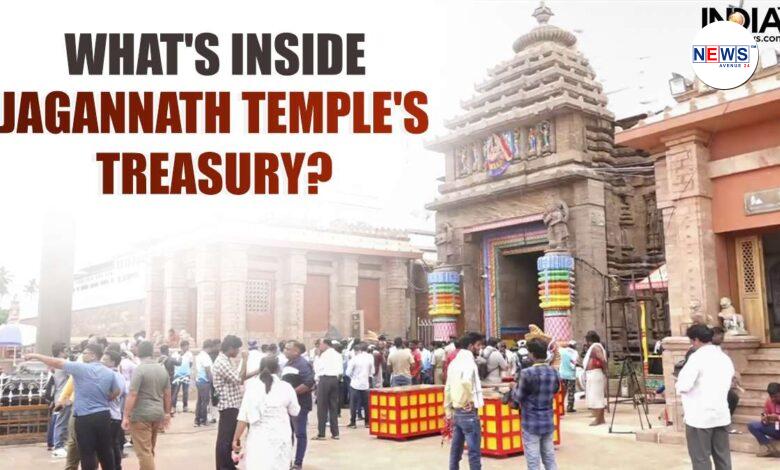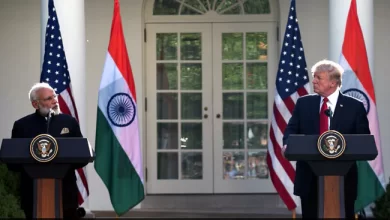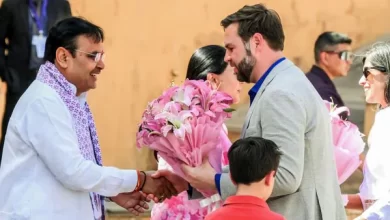
Ratna Bhandar of Puri Jagannath Temple reopens after 46 years: What’s inside treasury?
The Ratna Bhandar, the treasury of the 12th-century Jagannath Temple in Odisha, was reopened after 46 years. An 11-member team, including officials from the Shree Jagannath Temple Administration and the Archaeological Survey of India, broke three locks to access the inner chamber.
The Ratna Bhandar, or treasury, of the Jagannath Temple in Odisha was reopened on Sunday, July 14, after being sealed for 46 years. The inner chamber, adjacent to the sanctum sanctorum housing the primary idols, was last opened in 1978. The 11-member team comprised Shree Jagannath Temple Administration (SJTA) chief administrator Arabinda Padhee, Orissa High Court judge Biswanath Rath, ASI Superintendent DB Gadanayak, and a representative of Puri’s titular king, Gajapati Maharaja, among others.
Breaking the locks
The team faced difficulties in unlocking the inner chamber with the provided keys, ultimately breaking three locks to gain entry. “We carried out all the work as per SOPs. We first opened the outer chamber of the Ratna Bhandar and shifted all ornaments and valuables kept there to the temporary strong room inside the temple. We have sealed the strong room,” said Arabinda Padhee.
Valuables inside
The Ratna Bhandar consists of two parts: the Bhitar Bhandar (Inner Treasury) and the Bahar Bhandar (Outer Treasury). In 1978, an inventory of the treasury took 70 days to complete, revealing 454 gold articles and 293 silver articles. The outer treasury houses a golden crown of Lord Jagannath and three gold necklaces, each weighing 120 tolas (1 tola = 11.66 grams).
Historical donations
According to Odisha Magazine, Odisha’s King Anangabhima Dev donated 2.5 lakh madhas (1 madha = 5.23 grams) of gold to create jewellery for the deity. The chambers also contain plates made of gold, diamonds, pearls, and corals, reflecting the temple’s rich history and the devotion of its patrons.
Political and religious controversy
The reopening of the treasury has been a contentious issue, both politically and religiously. The Bharatiya Janata Party (BJP) previously criticised the ruling Biju Janata Dal (BJD) for keeping the treasury shut. Prime Minister Narendra Modi and Home Minister Amit Shah urged for transparency regarding the jewellery and precious stones inventory.
“The tradition of Jagannath Dham has been lowered in the name of promoting Puri as a tourist hub. The Shreekshetra (Puri) has been transformed into a commercial centre. The mutts have been demolished and the four entry doors of Jagannath Temple remain closed. There was a conspiracy to stop the Rath Yatra of Lord Jagannath,” Shah stated during a public meeting.
Government actions
Following their electoral victory, the BJP under Chief Minister Mohan Majhi, reopened all four gates of the temple and the treasury. Additionally, the government announced Rs 500 crore ($60 million) for the temple’s beautification and repair.
Cultural significance
The Jagannath Temple is renowned for its annual Rath Yatra, a festival celebrating Lord Jagannath (an incarnation of Lord Vishnu), his brother Balbhadra, and his sister Subhadra. This festival is a major event in Odisha, attracting millions of devotees each year.
The reopening of the Ratna Bhandar not only unveiled the temple’s treasured possessions but also symbolises a significant moment in preserving the cultural and historical heritage of the Jagannath Temple.
News Source:- INDIA TV





